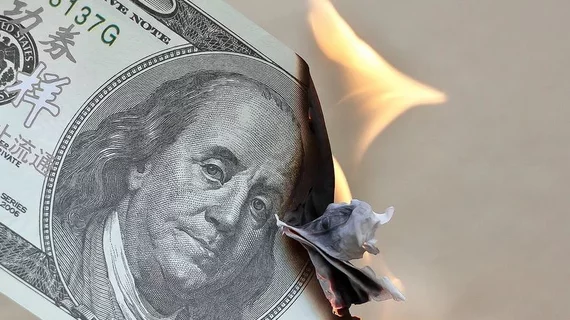Insurers spent millions on ivermectin prescriptions for COVID-19, despite the drug being ineffective
Insurers spent millions subsidizing the cost of ivermectin prescriptions for COVID-19 during a single week in 2021 despite evidence that the drug is ineffective, new research shows.
Demand for ivermectin, typically used to treat parasitic infections, skyrocketed across the U.S. in December 2020. But the true dollar amount insurers wasted on the drug, to this point, has remained a mystery, experts explained Jan. 13 in JAMA Network Open.
With this in mind, the researchers analyzed more than 5,500 oral ivermectin prescriptions dispensed to patients on private insurance and Medicare between December 2020 and March 2021. During the week of August 13, 2021 (the date of the most recently available data), insurers paid out nearly $2.5 million for ivermectin, according to the analysis.
Extrapolating that figure, the group estimated such prescriptions would cost about $129.7 million annually, the researchers reported.
“Findings suggest that insurers heavily subsidized the costs of ivermectin prescriptions for COVID-19, even though economic theory holds that insurers should not cover ineffective care,” Kao-Ping Chua, MD, PhD, with the University of Michigan Medical School, and co-authors added in their research letter. “For perspective, this total exceeds estimated annual Medicare spending on unnecessary imaging for low back pain, a low-value service that has received extensive attention.”
For the study, Chua et al. performed a cross-sectional analysis of the IQVIA Pharmetrics Plus database, which included a sample of 5 million privately insured patients and 1.2 million on Medicare Advantage plans. They excluded individuals with a diagnosis code for parasitic infection in the week before their prescription and those without continuous insurance enrollment.
Out of 5,939 prescriptions, the group excluded 348. The remaining 4,700 were for privately insured patients. During the week of August 13, 2021, private and Medicare plans paid about $1,568,996 and $924,720 for ivermectin prescriptions for COVID-19, respectively.
The researchers believe the true amount of “waste” is much higher because their figures did not include Medicaid spending. They called on insurers to take action and limit coverage for the anti-parasite drug, including via prior authorization requirements.
"To be clear, clinicians may still prescribe ivermectin for COVID-19 and patients can choose to pay for these prescriptions themselves. Our point is simply that insurers shouldn’t cover these prescriptions unless ivermectin proves to be an effective COVID-19 treatment,” said Kao-Ping Chua, MD, PhD, a pediatrician at Michigan Medicine’s C.S. Mott Children’s Hospital and the Susan B. Meister Child Health Evaluation and Research Center.
Read the full research letter here.

